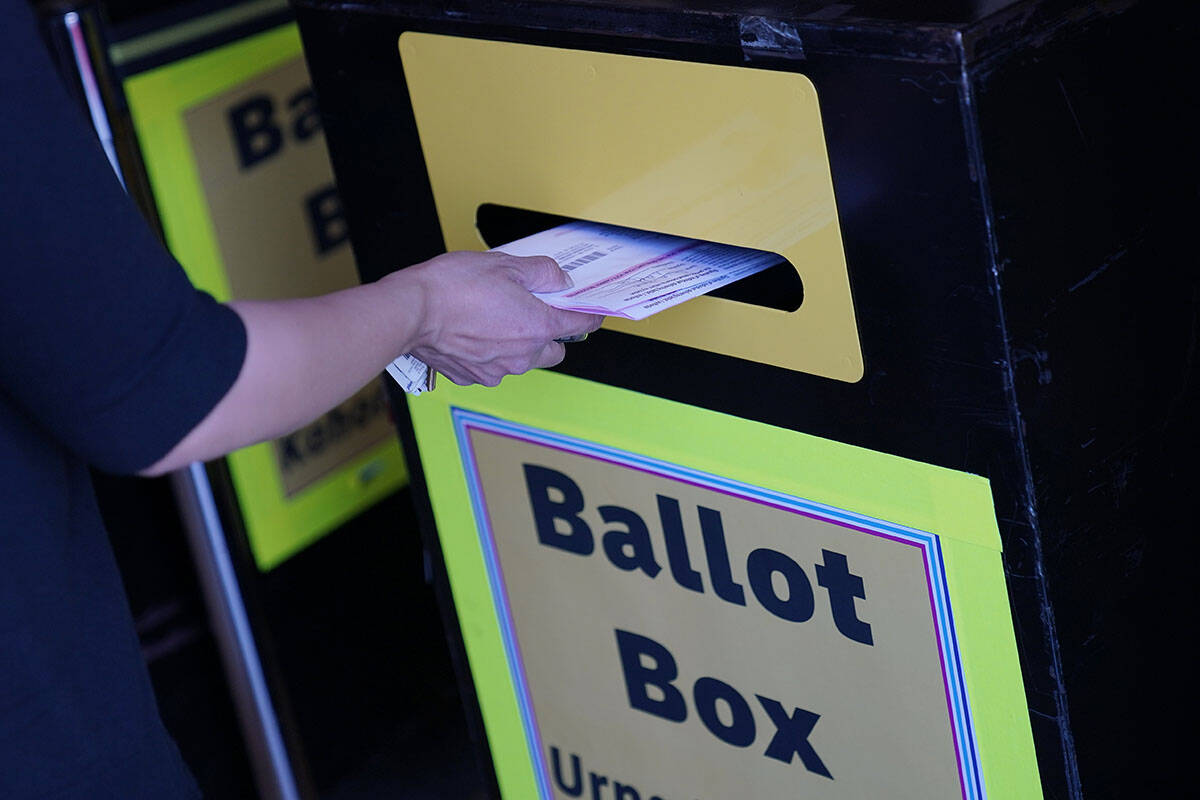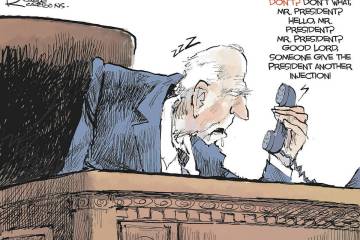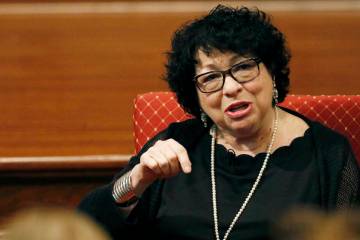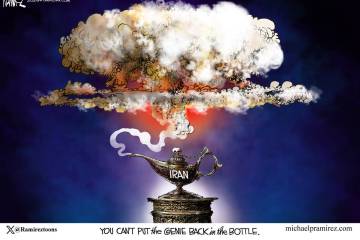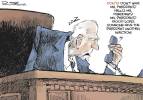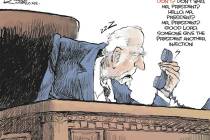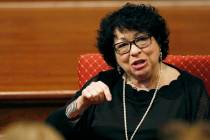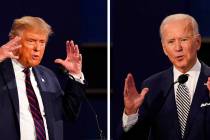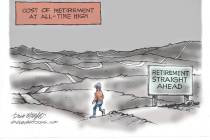NEVADA VIEWS: Radical change
Ranked-choice voting — which is the subject of a November ballot question in Nevada — is a system that allows voters to rank candidates in order of preference regardless of party affiliation. If no candidate wins an outright majority on Election Day, the lowest-ranked hopeful among also-rans is eliminated, elevating the second choices on those ballots. This process continues until one candidate emerges with a majority of the remaining ballots.
On its face, this redistribution is sheer presumption adding a complexity to vote counting that few average voters would embrace.
The Maine Policy Institute, a nonpartisan think tank, studied 96 different ranked-choice elections in which multiple rounds of tabulation were necessary to declare a winner. The study found the eventual winning candidate failed to receive a true first ballot majority in the initial count almost 40 percent of the time, prevailing only after eliminating the lower finishers in any round until one larger vote-getter crossed the 50 percent threshold.
If ranked-choice voting becomes law three years hence, Nevada would be the most populous state to implement it. In 2020, voters said no thanks to it in Massachusetts by a nearly 55-45 percent margin even though proponents had spent more than $10 million to publicize the measure. That same year the Alaska implemented the system for general elections, as voters approved it very narrowly. It will be initially employed in Alaska’s general election this November.
Ranked-choice voting was bad for Minneapolis, electing in 2017 the inept Jacob Frey as mayor, who prevailed after six rounds of voting that took a day to complete. He was the first choice of only 25 percent of the voters. He did nothing to prevent rioters to burn and loot more than 1,300 buildings, causing an estimated $500 million in damage.
Eric Adams won New York City’s recent mayoral election, but only after nine elimination rounds. Do we want to import such confusion to Nevada?
In 2018 ranked choice voting “robbed” the leading candidate for Maine governor of his first-ballot win. The top vote-getter was a Republican in a rather Democratic state, but as additional rounds were implemented, a Democrat slipped in because of ranked choice.
Mike Kazmierski, president and CEO of the Economic Development Authority of Western Nevada, wrote last month for the Reno Gazette-Journal that “the most significant advantage of RCV is that every registered voter gets to vote for any candidate that is running to represent them, regardless of party.” But has ranking choices per se in fact result in more participation by voters in states already using this system, as alleged? There is no proof of that in any statewide elections.
In addition, if I would vote for a favorite candidate on Election Day but could not care less for the others on the ballot for the office, I would be dividing my vote between my single preferred candidate and unacceptable ones. My personal will, the candidate who suits me best and would win in 48 states, may not ultimately be elected amidst the jungle that is ranked-choice voting.
Most organizations promoting RCV are extreme. One such group, Fair Vote, announced that “cracks in our democracy are evident. If we don’t enact massive, systemic reforms soon, we run the risk of our democracy falling apart altogether.” Really? Nevada Voters First stated that RCV “will allow voters the opportunity to have more choice and more voice in the electoral process.” But there’s no explanation for how this would occur.
Instead, parties can promote their values and time-tested principles as they enhance responsible party maintenance and growth. It ensures one man-one vote and avoids the mass of candidates participating in unstable elimination rounds, as shown above.
In sum, ranked-choice voting is a Trojan horse infiltrating Nevada’s efficient electoral system, which has served Nevadans well for more than 160 years.
An old saw still applies: If it ain’t broke, don’t fix it. Ranked choice remains a solution in search of a problem, for it creates needless complexity that makes voting less, not more, accessible.
An astonishingly simple solution would be to allow the nonpartisan voter to request a ballot of his or her choice — Republican, Democrat or third party — as these voters participate in in-person voting, an option available in several other states for years. This maintains responsible parties and preserves legislative committee chairmanships and the proper makeup of committees.
Plurality voting is not perfect, but it is far less complicated and less costly to administer than ranked-choice voting, which evidently does not result in firm, decisive outcomes. Does not equity consist of making all citizens equal? Why is it reasonable, even just, to rank them? Gov. Steve Sisolak and our state’s U.S. senators have said they do not favor ranked chioice. Join them in November by voting against the implementation of this system.
Stanley Paher is a native Las Vegan and author. He writes from Reno.



